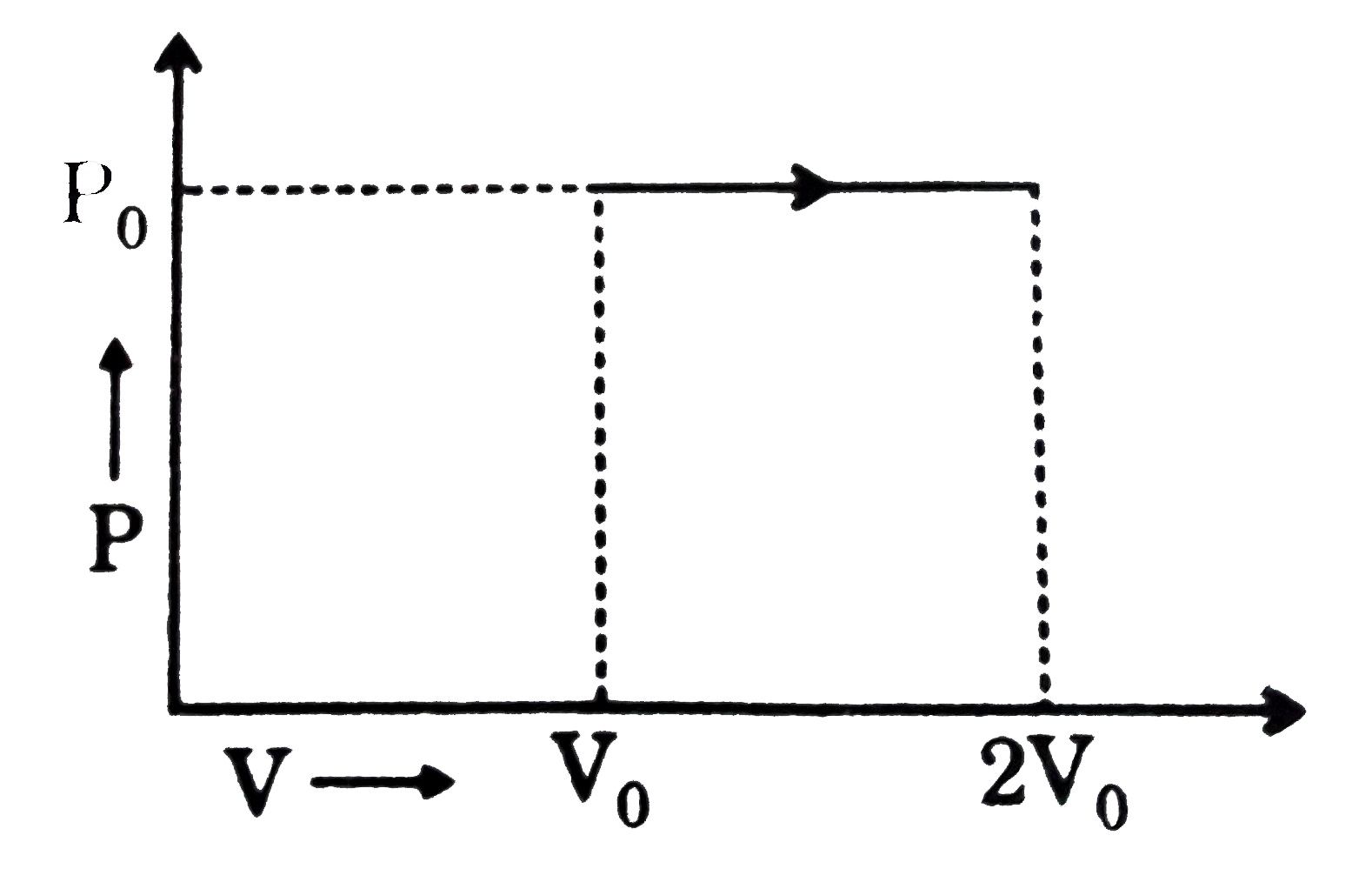One mole of an ideal gas (γ=1.4) performs 80 J of work while undergoing isobaric expansion. Find the amount of heat absorbed by the gas in the process and change in its internal energy.Solution in Bengali
The correct Answer is:280 J,200J
Step by step video, text & image solution for One mole of an ideal gas (gamma=1.4) performs 80 J of work while undergoing isobaric expansion. Find the amount of heat absorbed by the gas in the process and change in its internal energy. by Physics experts to help you in doubts & scoring excellent marks in Class 11 exams.
Updated on:21/07/2023Topper's Solved these Questions
- KINETIC THEORY OF GASESBOOK - CHHAYA PUBLICATIONCHAPTER - KINETIC THEORY OF GASESEXERCISE - EXERCISE ( Hot Numerical problems)
22 Videos
- KINETIC THEORY OF GASESBOOK - CHHAYA PUBLICATIONCHAPTER - KINETIC THEORY OF GASESEXERCISE - ENTRANCE CORNER(Assertion -reason type)
6 Videos
- KINETIC THEORY OF GASESBOOK - CHHAYA PUBLICATIONCHAPTER - KINETIC THEORY OF GASESEXERCISE - EXERCISE ( Problem set -I)
23 Videos
- HYDROSTATICSBOOK - CHHAYA PUBLICATIONCHAPTER - HYDROSTATICSEXERCISE - CBSE SCANNER
1 Video
- MEASUREMENT AND DIMENSION OF PHYSICAL QUANTITY BOOK - CHHAYA PUBLICATIONCHAPTER - MEASUREMENT AND DIMENSION OF PHYSICAL QUANTITY EXERCISE - CBSE SCANNER
18 Videos
Similar Questions
The area of one of the walls of container is 3cm2. 1023 Number of molecules are incident on it every second at an angle of 45∘. What is the pressure exerted on the wall if the velocity of each molecule is 105cm.s−1 and it mass is 3.32×10−24g?
View SolutionStatement I: The root mean square speeds of the molecules of different ideal gases at the same temperature are the same.
Statement II: The average translational kinetic energy of molecules of different ideal gas are same at the same temperature.
View SolutionIF the density of hydrogen gas is 0.00009g.cm−3 determine the value of rms speed of hydrogen molecules at STP.
View SolutionUsing Pascal's law, explain with a neat figure, the working of a hydraulic lift. Mention any one situation from your daily life where hydrostatic paradox is useful.
View SolutionPercentage error in the measurement of height and radius of cylinder are x and y respectively. Find percentage error in the measurement of volume. Which of the two measurements height or radius need more attention?
View SolutionA sample of ideal gas (γ=1.4) is heated at constant pressure. If 140J of heat is supplied to gas, find ΔU and W.
View SolutionA diatomic gas (γ=1.4) does 200 J of work when it is expanded isobarically. Find the heat given to the gas in the process.
View SolutionAs a result of the isobaric heating by DeltaT=72K , one mole of a certain ideal gas obtain an amount of heat Q=1.6kJ . Find the work performed by the gas, the increment of its internal energy and gamma .
View Solution1 g mole of an ideal gas at STP is subjected to a reversible adiabatic expansion to double its volume. Find the change in internal energy ( gamma = 1.4)
View SolutionAn ideal gas with the adiabatic exponent gamma undergoes a process in which its internal energy relates to the volume as u = aV^alpha . Where a and alpha are constants. Find : (a) the work performed by the gas and the amount of heat to be transferred to this gas to increase its internal energy by Delta U , (b) the molar heat capacity of the gas in this process.
View SolutionIf the internal energy of an ideal gas varies as U=2PV and the gas undergoes an expansion as shown below, then heat absorbed in the process will be :

View SolutionA gas receives an amount of heat equal to 110 J and performs 40 J of work. The change in the internal energy of the gas is
View SolutionA diatomic gas (γ = 1.4) does 300 J work when it is expanded isobarically. The heat given to the gas in this process is
View SolutionA diatomic gas (γ = 1.4) does 300J work when it is expanded isobarically. The heat given to the gas in this process is
View SolutionCertain amount of an ideal gas (γ=1.4) performs 80J of work while undergoing isobaric expansion. Find the amount of heat absorbed by the gas in the process and the change in its internal energy.
View SolutionA diatomic gas (γ=1.4) does 200 J of work when it is expanded isobarically. Find the heat given to the gas in the process.
View Solution